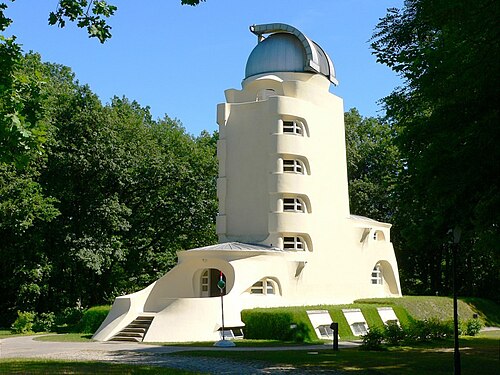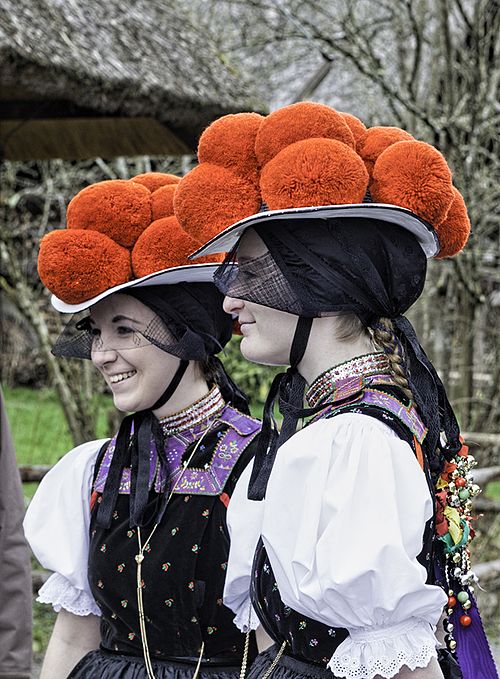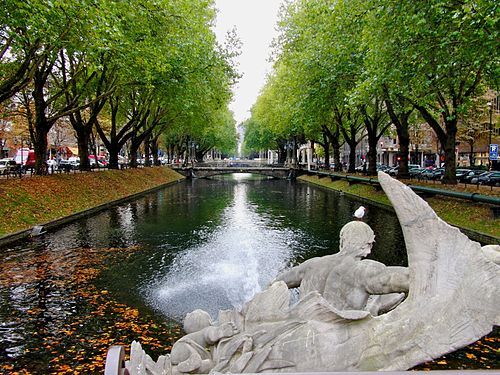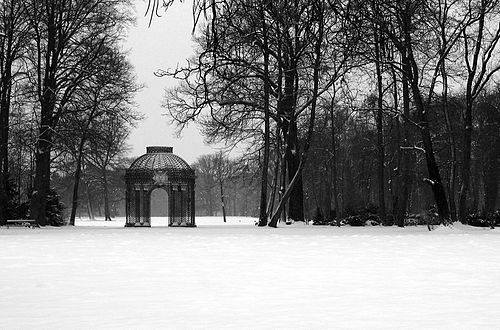Portal:Germany
Willkommen im Deutschland-Portal!

|

|

| |
Germany (German: Deutschland), officially the Federal Republic of Germany, is a country in Central and Western Europe, lying between the Baltic and North Seas to the north and the Alps to the south. It borders Denmark to the north, Poland and the Czech Republic to the east, Austria and Switzerland to the south, France to the southwest, and Luxembourg, Belgium and the Netherlands to the west.
Germany includes 16 constituent states, covers an area of 357,578 square kilometres (138,062 sq mi) and has a largely temperate seasonal climate. With 83 million inhabitants, it is the second most populous state of Europe after Russia, the most populous state lying entirely in Europe, as well as the most populous member state of the European Union. Germany is a very decentralized country. Its capital and largest metropolis is Berlin, while Frankfurt serves as its financial capital and has the country's busiest airport.
In 1871, Germany became a nation-state when most of the German states unified into the Prussian-dominated German Empire. After World War I and the Revolution of 1918–19, the empire was replaced by the parliamentary Weimar Republic. The Nazi seizure of power in 1933 led to World War II, and the Holocaust. After the end of World War II in Europe and a period of Allied occupation, two new German states were founded: West Germany, formed from the American, British, and French occupation zones, and East Germany, formed from the western part of the Soviet occupation zone, reduced by the newly established Oder-Neisse line. Following the Revolutions of 1989 that ended communist rule in Central and Eastern Europe, the country was reunified on 3 October 1990.
Today, Germany is a federal parliamentary republic led by a chancellor. It is a great power with a strong economy. The Federal Republic of Germany was a founding member of the European Economic Community in 1957 and the European Union in 1993. Read more...
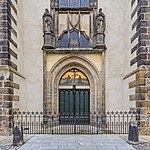
The Ninety-five Theses or Disputation on the Power of Indulgences (Latin: Disputatio pro declaratione virtutis indulgentiarum) are a list of propositions for an academic disputation written in 1517 by Martin Luther, professor of moral theology at the University of Wittenberg, Germany, that started the Protestant Reformation, a schism in the Catholic Church which profoundly changed Europe. They advance Luther's positions against what he saw as abusive practices by preachers selling plenary indulgences, which were certificates believed to reduce the temporal punishment for sins committed by the purchasers themselves or their loved ones in purgatory. In the Theses, Luther claimed that the repentance required by Christ in order for sins to be forgiven involves inner spiritual repentance rather than merely external sacramental confession. He argued that indulgences lead Christians to avoid true repentance and sorrow for sin, believing that they can forgo it by purchasing an indulgence. They also, according to Luther, discourage Christians from giving to the poor and performing other acts of mercy, believing that indulgence certificates were more spiritually valuable. Though Luther claimed that his positions on indulgences accorded with those of the pope, the Theses challenge a fourteenth-century papal bull stating that the pope could use the treasury of merit and the good deeds of past saints to forgive temporal punishment for sins. The Theses are framed as propositions to be argued in debate rather than necessarily representing Luther's opinions, but Luther later clarified his views in the Explanations of the Disputation Concerning the Value of Indulgences. More...
- Parent portals
- Regional
- History
 Holy Roman Empire (900–1806)
Holy Roman Empire (900–1806) East Germany (1949–1990)
East Germany (1949–1990)
- Neighbouring countries
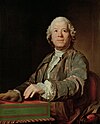
- 1741 – Birth of poet and physiognomist Johann Kaspar Lavater
- 1787 – Death of composer Christoph Willibald Gluck
- 1862 – Birth of author Gerhart Hauptmann, winner of the 1912 Nobel Prize for Literature
- 1936 – Birth of singer-songwriter and dissident Wolf Biermann
- 1959 – The Social Democratic Party of Germany ratisfies its Godesberg Program, giving up on the ideas of Marxism
- ... that Marie Marcks sarcastically caricatured gender roles like no one before, according to Jutta Limbach?
- ... that during the Second World War the British government transmitted German music to Nazi U-boats?
- ... that the Niederdollendorf stone, the Grésin plaque, and the Landelinus buckle are each controversially conjectured to depict a pagan-inspired Jesus Christ?
- ... that Prussian-born Samuel Conrad Schwach founded the first newspaper in Norway in 1763?
- ... that Gerda Philipsborn, a German woman, dedicated her life to the development of Jamia Millia Islamia, a national university in New Delhi?
- ... that a German pastor let a deposed East German head of state stay in his house?
- ... that after Hitler came to power in 1933, the newspaper Hakenkreuzbanner acquired an office building and printing presses by seizing them from a Social Democratic publication?
- ... that according to tradition Saint Ludger healed the Frisian bard Bernlef of his blindness and taught him to play psalms on his harp?
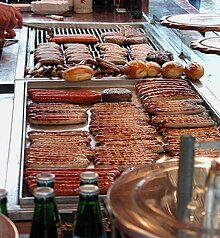

A list of articles needing cleanup associated with this project is available. See also the tool's wiki page and the index of WikiProjects.
Here are some tasks you can do. Please remove completed tasks from the list.
- Requests: German Archaeological Institute at Rome, Deutsche Familienversicherung, Dietlof von Arnim-Boitzenburg, Rolf von Bargen, Hennes Bender, Georg Bernhard (1875–1944), Eduard Georg von Bethusy-Huc, Rolf Brandt (1886–1953), Jan Philipp Burgard, Lisa Feller, Georg Arbogast von und zu Franckenstein, Georg Gafron, Ferdinand Heribert von Galen, Gundula Gause, Karl-Heinz Hagen, Herbert Helmrich, Nils von der Heyde, Monty Jacobs (1875–1945), Hans Katzer, Siegfried Kauder, Matze Knop, Wolfgang Kryszohn, Claus Larass, Isidor Levy (1852–1929), Markus Löning, Tobias Mann, Mathias Müller von Blumencron ,Günther Nonnenmacher Anke Plättner, Hans Heinrich X. Fürst von Pless, Gerd Poppe, Victor-Emanuel Preusker, Günter Prinz, Ulrich Reitz, Hans Sauer (inventor), Franz August Schenk von Stauffenberg, Paul Schlesinger (1878-1928),Oscar Schneider, Hajo Schumacher, Otto Theodor von Seydewitz, Christoph Sieber (comedian), Dorothea Siems, Werner Sonne, Anton Stark, Udo zu Stolberg-Wernigerode, Christoph Strässer, Joseph von Utzschneider, Jürgen Wieshoff, Hans Wilhelmi, Dietmar Wischmeyer, Alexandra Würzbach
- Unreferenced: Unreferenced BLPs, Bundesautobahn 93, Benjamin Trinks, Steeler (German band), Amelie Beese, Zoologisches Museum in Kiel, Emil Krebs, Prussian semaphore system, Partenstein, Peter Krieg, Porsche 597, Christa Bauch, Curt Cress, Stefan Beuse
- Cleanup: 53541 issues in total as of 2024-03-03
- Translate: Articles needing translation from German Wikipedia
- Stubs: Albersdorf, Thuringia, Ingo Friedrich, Berndt Seite, Federal Social Court; 118 articles in Category:German MEP stubs
- Update: Deutsches Wörterbuch
- Portal maintenance: Update News, Did you know, announcements and the todo list
- Orphans:
Orphaned articles in Germany

- Photo: Take/Add requested photographs
- Expression error: Unrecognized punctuation character ",".
The following Wikimedia Foundation sister projects provide more on this subject:
-
Commons
Free media repository -
Wikibooks
Free textbooks and manuals -
Wikidata
Free knowledge base -
Wikinews
Free-content news -
Wikiquote
Collection of quotations -
Wikisource
Free-content library -
Wikiversity
Free learning tools -
Wikivoyage
Free travel guide -
Wiktionary
Dictionary and thesaurus







